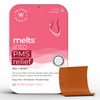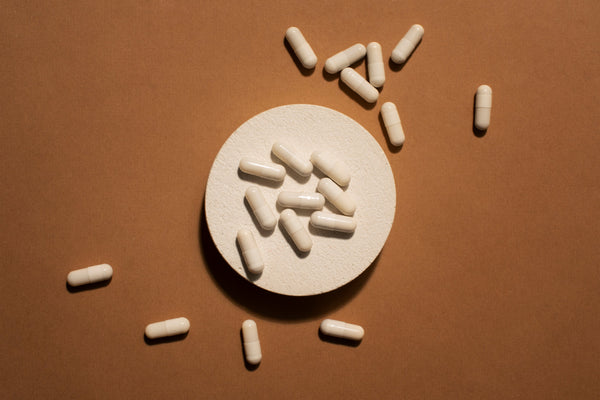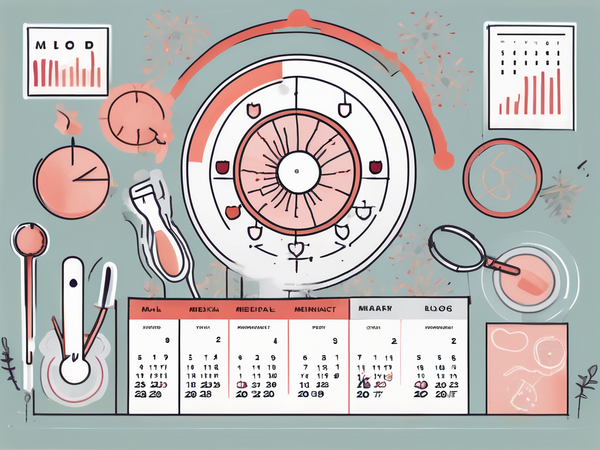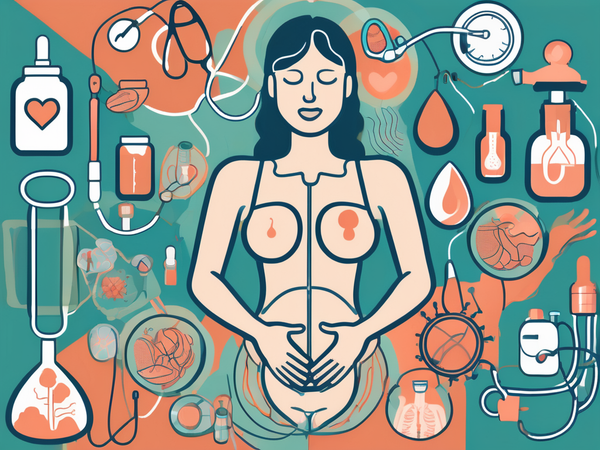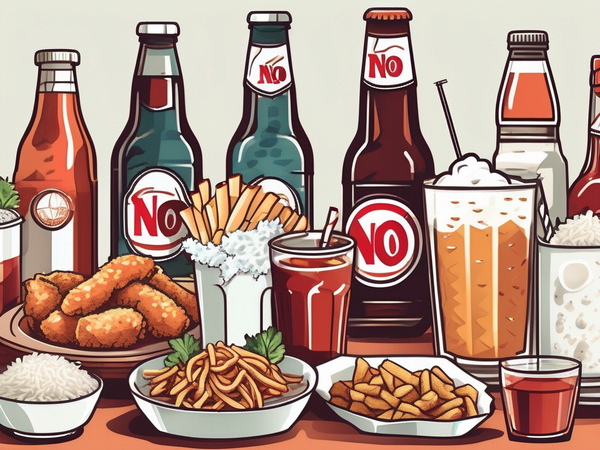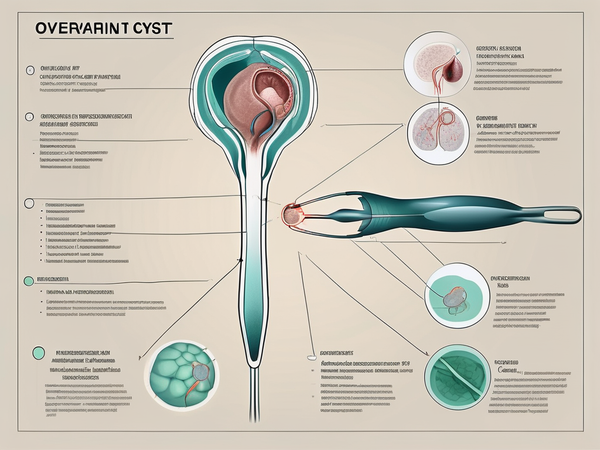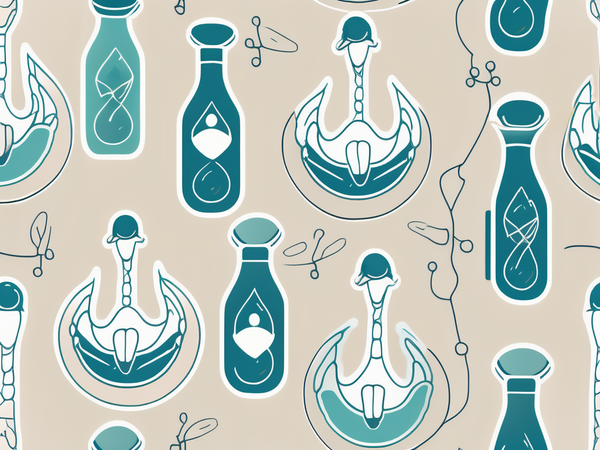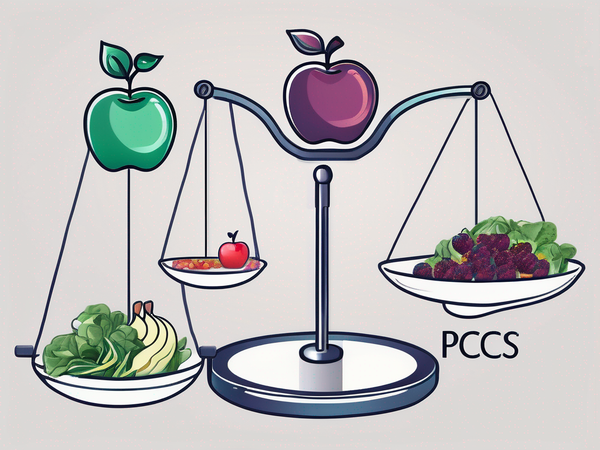Each person may experience different symptoms of PMS. Your friend might only have cramps, but you might endure mood swings, irritation, hair fall, and a face covered in pimples and acne, coupled with excruciating cramps. Regardless of whether your symptoms are minor or extreme, the truth is that they can cause a hindrance to your daily routine. In this blog, we’ve listed down six easy methods that will help you manage these unwanted discomforts efficiently and get relief for period pain. Try at least a couple of these things, and we are sure you will notice the difference.
So, what’s causing those uninvited cramps & mood swings?
Before we get into the 6 effective ways to rid you of these unwanted PMS symptoms, let's first understand what’s causing them.
Premenstrual Symptoms, as the name implies, are particular symptoms that occur a week or two before the start of your menstruation. When your menstruation starts, these symptoms stop. Following menopause, you won't experience them. Due to the hormonal and physical changes a woman experiences after giving birth, PMS symptoms frequently alter. The fact that PMS alters with age is another distinctive feature of the condition. Your hormone levels alter over the course of your life, causing changes in PMS symptoms.
PMS symptoms could be physical, like abdominal pain, or emotional, like irritability and depressed thoughts.
Physical Symptoms-
- Abdominal cramps
- Headache
- Backache
- Digestive issues like bloating, constipation, or diarrhea
- Swollen or tender breasts
- Exhaustion
- Acne
- Nausea
- Hair fall
Psychological Symptoms-
- Irritability
- Mental fatigue
- Trouble falling asleep
- Depression
- Suppressed appetite or increased cravings
- Decreases libido
- Mood swings
- Poor memory and focus
Estrogen and Serotonin regulation are closely associated with PMS
The whole menstrual cycle is marked by hormonal changes, which coincide with PMS symptoms. The luteal phase of a menstrual cycle begins around day 15 and features fluctuations in estrogen levels. These fluctuations are often responsible for the mood swings experienced by many menstruating women. Decreased estrogen levels cause the hypothalamus to release norepinephrine, which triggers a decline in the happy hormones (serotonin & dopamine), leading to depression, mental fatigue, and sleeplessness. However, serotonin, our happy hormone, increases significantly between days 7–11 and 17–19 of a normal cycle, making you feel like you’re on cloud nine.
In a nutshell, your body takes you on a mental rollercoaster throughout the menstrual cycle, causing various physical symptoms at the same time.
Besides your hormones, your lifestyle is also to blame. Poor lifestyle practices like too little exercise, excessive sugar and fried food intake, poor sleep quality, and smoking further worsen premenstrual symptoms by causing a disbalance in hormone levels.
Can PMS Be Treated Permanently?
Sorry to break your heart, but that is not possible. It isn’t a disease in the first place. PMS symptoms are just the repercussions of a bad lifestyle and hormonal imbalance, and they are certainly incurable. But the good news is that PMS can be managed. Even though it's easier said than done, it is very possible for you to keep these symptoms under control. Let’s see some effective ways to ease these nightmarishly scary symptoms.
6 Effective Ways to Manage PMS

-
Relaxation Therapy
Psychological stress is a significant contributor to hormone imbalance and the main cause of PMS. Therefore, managing your stress is the simplest method you can employ to treat PMS. You can try meditation, yoga, exploring hobbies, or, if you are in for something very effective and commonly recommended, give Cognitive Behavioral Therapy (CBT) a chance.
CBT includes a professional therapy session in which you talk about your problems and learn how to manage them. The professional will often ask you to carry out certain activities, like facing your fears, to make you mentally strong and ease your anxiety and depression. Doing these sessions won’t mean that your stress will magically vanish, but you’ll become more capable of managing it in a way that doesn’t affect your physical and mental well-being.
CBT can be done as a one-on-one session or as group CBT, where a target group with similar problems receives therapy as a group. A study conducted with a group of college girls experiencing PMS symptoms revealed that group CBT is effective for the psychological symptoms of PMS.
2) Regular Exercise
Exercising regularly builds stronger muscles and uplifts your mood. A better mood implies that your serotonin levels are high, ensuring a happy state of mind. Additionally, it has been shown that regular exercise regulates the levels of progesterone and estrogen, thus maintaining an equilibrium of hormones. A study conducted with a sample of non-athletic girls with PMS symptoms showed that 8 weeks of aerobic activity alone is highly effective in reducing the symptoms. The study also backed exercise as a method of treatment for PMS.
3) Fix Your Sleep Schedule
Your body runs according to your body clock, or circadian rhythm. Various metabolic and hormone secretion activities coincide with the circadian rhythm; hence, any disturbance in your circadian rhythm greatly affects the vital functions of your body. Throughout your sleep-wake cycle, various hormones go up and down to carry out necessary functions. For example, when you are awake, cortisol levels rise and melatonin levels go down. The reverse happens when it's time to sleep. Constant sleep deprivation implies that your cortisol levels are always high, thus elevating stress-related PMS symptoms like depression, anxiety, etc. Sleep may not be able to get rid of PMS symptoms, but maintaining your sleep cycle will surely make it easy for you to sleep well during your periods, keeping your hormone levels in check, in turn, reducing stress.
4) Natural Supplements
Nature has solutions for all your health issues, but it’s a bit of a hassle to acquire these fragments of nature. This is where natural supplements come in handy. These supplements act as the best pain relief for period cramps as they are enriched with vital nutrients and are available in an easy-to-administer form. There are many natural supplements that provide pain relief for period cramps and other symptoms like bloating, breast tenderness, and irritability. These supplements can give you instant relief for period cramps naturally.
Some ingredients to look for when buying a PMS supplement-
-
Vitex
-
Inositol
Inositol, also known as vitamin B8, is considered effective in improving PMDD. Although inositol is considered a part of the B-complex, it is not a vitamin; it is a sugar that helps with mental conditions. Inositol's uses aren’t limited to treating PMSS; it also helps improve insulin sensitivity, mental conditions, and PCOS.
-
Ginfort®
-
Vitamin D
-
Boron
Boron is present in various fruits and legumes, including avocados, raisins, peaches, beans, etc. It possesses powerful anti-inflammatory properties and is proven to be effective in reducing the severity of abdominal pain and cramps during periods.
5) Fix Your Diet
Finally, it all boils down to what you eat. Make sure you are eating fewer sugary, salty, and oily food items. Processed food is usually high in such ingredients and can cause bloating and weight gain. Moreover, in the luteal phase, the blood sugar level increases because of insulin resistance (the inability of insulin to transport sugar to the cells); hence, it is better to avoid sugary stuff to keep your blood sugar levels in check.
Have more fruits, veggies, fiber, healthy fats, and most importantly, protein. Make sure your daily diet is high in Vitamins B12, B6, and iron for a cramp-free period.
6) Chamomile Tea
A warm, soothing cup of chamomile tea is a great solution for women who experience horrendous abdominal cramps. It possesses antispasmodic properties and gives relief from painful cramps. Besides, it can influence the action of dopamine and serotonin, which help reduce stress and anxiety. You could also add ginger, which helps reduce the production of prostaglandins, and cinnamon to restore hormonal balance.
Wrapping Up
Premenstrual Symptoms can make life dreadful. It is both physically and mentally tiring to deal with these unusual, unexplainable feelings and physical symptoms. Maintaining a good lifestyle and having a good diet are crucial if you wish to control your PMS. Since lifestyle changes are time-consuming and difficult, you should consider taking natural supplements. Natural supplements are free from chemicals and provide you with nature’s best care in an easily accessible form.
References:
https://www.ncbi.nlm.nih.gov/books/NBK560698/
https://www.ncbi.nlm.nih.gov/pmc/articles/PMC7465566/
https://www.ncbi.nlm.nih.gov/pmc/articles/PMC4888138/
https://www.ncbi.nlm.nih.gov/pmc/articles/PMC6970572/








